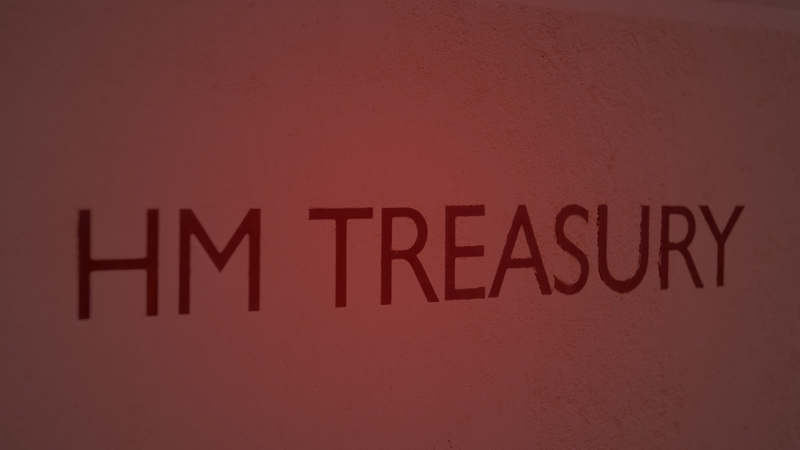The Autumn Budget and the effect on Inheritance Tax

The effect of the Autumn Budget
The Government’s Autumn Budget date is set for 30th October 2024 and many people are nervously anticipating what changes the new Government may enforce and what effect these changes may have on them.
Solicitors regularly provide advice to clients in relation to Estate planning and with changes to Inheritance Tax (IHT) being a hot topic of conversation, rumours surrounding changes to IHT are a likely possibility.
Inheritance Tax (IHT)
As it stands, only around four percent of Estates pay IHT, however rumors are circulating that the upcoming budget could result in the IHT threshold being reduced, meaning that more Estates may be liable to pay IHT. Below, we look at aspects of Estate planning which may be reviewed at the upcoming Autumn Budget.
1. Nil Rate Bands
When a person passes away, the first £325,000 of their assets fall into the nil rate band allowance and no IHT is paid on this amount. This obviously protects many small Estates from being liable to pay IHT.
Secondly, if your assets include your family home or main residence, which is being left to a direct descendant, such as your children, then a further £175,000 residence nil rate band can be added to your standard nil rate band, meaning that you may have up to £500,000 worth of assets which would not be liable to any IHT, upon your death.
Most Estates in the UK are within the threshold of the nil rate bands and it is therefore not unreasonable to confirm that the Government would not rule out making any changes to these thresholds, despite such a decision being very controversial.
2. Spouses and Civil Partners
The law currently states that anything you leave to your spouse or civil partner, following your death, is free from IHT. This means you can pass your entire Estate to your spouse or civil partner and there will be no IHT to pay.
Following this, you are also able to pass on your nil rate band allowances to your spouse or civil partner. This means that when your spouse or civil partner passes away, they can have up to £1 million worth of assets, which will not attract any IHT.
Again, we cannot rule out the government making any changes to these rules, however, they run the risk of a huge reaction from the public, as this could result in bereaved spouses and civil partners having to sell their homes in order to pay IHT upon the death of their spouse. As a result, we see it to be an unlikely option for them as this would drastically affect the popularity of the new Labour government, although this outcome cannot be ruled out completely.
3. Pensions
Many people in the UK have a defined contribution pension in place. A defined contribution pension is a type of retirement plan whereby both an employee and an employer make regular contributions to a pension pot. Where monies are held in a defined contribution pension, this pension pot can be passed on, following death, without having to pay any IHT. It is a likely possibility that the Government will address this.
The Government may choose to review private pensions on the basis that not everyone has them, this means that they may face reduced criticism from the public, on the basis that it will affect less people. If you do, however, have a defined contribution pension in place, this could have an extreme effect on your Estate, especially where people have been utilising their pension(s) in a manner to help reduce their IHT liability by paying more money into it throughout their lives. If the Government decide to make a change to the IHT position regarding these pensions, you will need to review your Estate planning options.
4. Business and Agricultural Property Relief
Currently, business property relief allows for the exemption of certain business assets from IHT. This can often be crucial for family run businesses and farms who are wanting to pass down their business and business assets to the next generation, whether this be during their lifetime or upon their death.
These reliefs can reduce the value of these assets, such as business assets, or shares in qualifying companies, by either 50% or 100% for the purposes of calculating IHT and therefore, any changes to these reliefs could affect Estate planning and the overall financial health of these businesses.
If the Government decides to make changes to these reliefs in their upcoming Budget, whether this be through tightening their criteria or reducing the relief percentages, it could lead to increased tax burdens for business owners and ultimately jeopardise their investments and growth.
On the agricultural side, agricultural property relief plays a vital role in ensuring that farms can be passed on without incurring huge IHT bills. Farming groups understand the importance of this relief for the stability of their businesses, as well as their continuity. A reduction in these reliefs could result in decisions, such as sending children to agricultural college, a thing of the past, due to the uncertainty of the financial well-being of the business post death.
Many believe that if these changes do come into force, that many family-owned farms and businesses may have to be sold, or liquidated, to pay any IHT bill. On the other hand, many argue that these reliefs are often exploited by the wealthy in order to swerve an IHT bill; hence the argument for its reform.
5. AIM shares
It is usual that shares held on the AIM Exchange will qualify for business relief, which means that they can be inherited without the worry of them attracting IHT. However, this is conditional on them being held for at least two years prior to death, as well as on death.
Where shares have not been held for a minimum of two years, they can be inherited by a spouse or civil partner and as explained above, leaving anything to a spouse or civil partner is free from IHT.
There are calls for this loophole to be addressed in the upcoming budget and there is a high possibility that it will, due to the high amount of revenue that this tax scheme would generate within the next decade if it were to be enforced. If this is to be the case, then we could see less people investing in AIM shares, as often people make this investment as a method of reducing their IHT bill.
Contact Us
Now is the time to review your Estate as it is important to determine whether or not Autumn Budget could affect you. Please contact our Private Client team, who will be more than happy to assist you with your Estate planning options on 0330 300 1103 or 01924 868933.

More Information
To see how Jordans Solicitors can help you, call 0330 300 1103 or see below for more information.